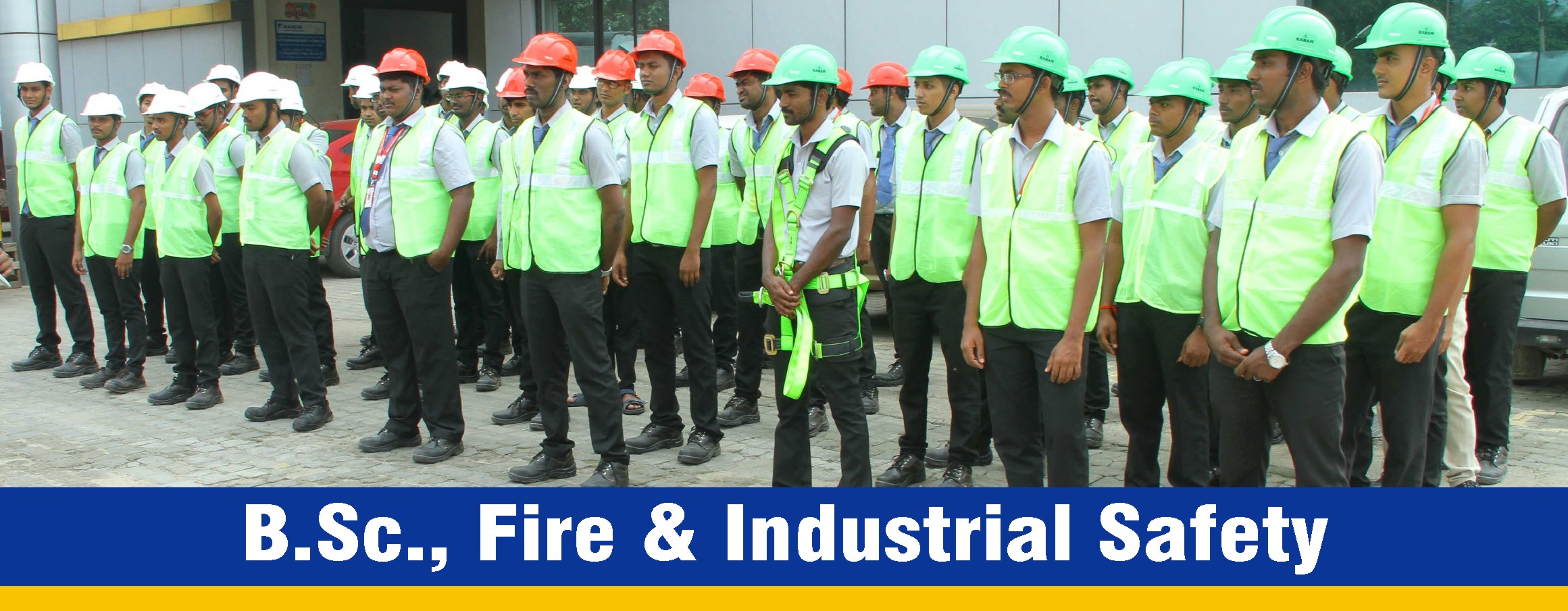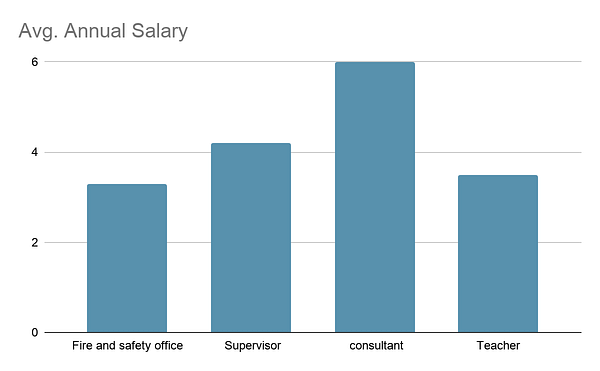Students Support
[ez-toc] BSc in Fire and Industrial Safety A BSc in Fire and Industrial Safety through distance education offers students the
[ez-toc]

A BSc in Fire and Industrial Safety through distance education offers students the opportunity to pursue this specialized degree remotely, providing flexibility for working professionals or individuals unable to attend traditional on-campus classes. The program covers essential aspects of fire safety, industrial hazard management, emergency response, and safety regulations.
Distance education typically includes online lectures, virtual classrooms, study materials, and assignments, enabling students to study at their own pace and balance their studies with other commitments. However, practical training and hands-on experience may be limited in a distance learning setup, requiring students to seek internships or practical sessions independently.
While distance education provides convenience, it demands self-discipline and motivation to stay on track. Prospective students should verify the accreditation and recognition of the institution offering the program to ensure the degree’s credibility and value in the job market. Successful completion of a BSc in Fire and Industrial Safety through distance education can lead to rewarding careers in safety management, risk assessment, and emergency response in various industries.
Some of the key highlights are listed below:
| Course Level | Undergraduate |
| Full-form | Bachelor of Science in Fire and Industrial Safety |
| Duration | 3 years full time / 3 years distance |
| Examination Type | semester |
| Eligibility | Science stream 10+2 with min. of 50% marks |
| Admission Process | Merit-based |
| Course Fee | INR 25,000 per semester |
| Average Salary | INR 5,00,000 |
| Top Recruiting Companies | Sun Flag, Jsw, Acc, Dlf, Essar, L&T, Abb, Adani, Tyco, Lloyds, Sunil Hitech, Vedanta, Gm, Reliance, Raymond |
| Job Profiles | Fire & safety supervisor, fire & safety officer, safety manager, fire manager, hazard control officer, and hazard & fire safety consultant among others. |
A Bachelor of Science (BSc) in Fire and Industrial Safety is a specialized degree program that focuses on preparing individuals to prevent, manage, and respond to fire-related incidents and industrial accidents effectively. There are several reasons why pursuing this degree can be beneficial:
Here are the general steps involved in the admission process:
Semester 1 | Semester 2 |
|---|---|
| Safety Management | Construction Industry Safety |
| Fire Science | Emergency Planning & First Aid |
| Fire Technology | Communicative English |
| Communication & Soft Skills | Practical |
| Industrial Safety | – |
Semester 3 | Semester 4 |
| Security Management of Industrial Plants | Organization, Administration and Management Responsibility |
| Chemical and Environmental Hazards | Industrial Psychology, Ergonomics and Accidents |
| Industrial Noise and Noise Control | Industrial Safety Analysis |
| Safety In Power Plants | Practical |
Semester 5 | Semester 6 |
| Social Security in Industries | Safety Training for Employees and HRD |
| Radiation Hazards | Occupational Health Safety |
| Controlling Environmental Pollution | Disaster Management |
| Energy Conservation and Sustainable Development | Practical |
A BSc in Fire and Industrial Safety program equips students with a range of theoretical knowledge and practical skills to excel in their careers. Some of the essential skills and attributes that are beneficial for pursuing this degree and succeeding in the field of fire and industrial safety include:
If you’re interested in the field of safety, health, and environmental management but want to explore other similar study options apart from a BSc in Fire and Industrial Safety, there are several related degrees and courses that you can consider. Some of these options include:
| Book Title | Author |
|---|---|
| “Introduction to Fire Protection and Emergency Services” | Robert Klinoff |
| “Fire Protection Handbook” | National Fire Protection Association (NFPA) |
| “Industrial Safety and Health Management” | C. Ray Asfahl |
| “Principles of Fire Behavior” | James G. Quintiere |
| “Fundamentals of Fire Fighter Skills” | International Association of Fire Chiefs (IAFC) |
| “Safety and Health for Engineers” | Roger L. Brauer |
| “Industrial Fire Protection Handbook” | R. Craig Schroll |
| “Fire Inspector: Principles and Practice” | International Code Council (ICC) |
| “Fire Dynamics” | Gregory E. Gorbett |
| “Process Safety: Concepts and Applications” | J. A. Smallwood |
| Aspect | BSc in Fire and Industrial Safety | BSc in Fire Safety and Hazard Management |
|---|---|---|
| Program Focus | Emphasizes both fire safety and industrial safety, covering prevention, response, and management of fire incidents in industrial settings. | Focuses primarily on fire safety and hazard management, including fire prevention, firefighting techniques, and hazard identification in various environments. |
| Curriculum | Includes courses on industrial safety, risk assessment, emergency response, safety regulations, environmental safety, and relevant engineering concepts. | Focuses on fire safety, fire behavior, fire protection systems, fire investigation, hazardous materials management, and safety regulations. |
| Industrial Applications | Tailored to meet the specific safety challenges in industrial settings such as manufacturing, oil & gas, construction, etc. | Equips students to handle fire safety and hazards in a broader range of environments, including residential, commercial, and industrial premises. |
| Occupational Safety | Covers a wide range of occupational safety aspects, including machinery safety, chemical handling, ergonomics, and workplace safety programs. | May cover general workplace safety, but the focus is primarily on fire safety and related hazards. |
| Emergency Response Training | Provides comprehensive training in emergency response planning and execution for fire incidents and industrial accidents. | Offers emergency response training with a specific focus on fire-related emergencies and associated hazards. |
| Environmental Safety | Addresses environmental safety concerns related to industrial processes and ensures compliance with environmental regulations. | May have limited coverage of environmental safety and regulations. |
| Career Opportunities | Opens up diverse career opportunities in industrial safety management, safety consulting, risk assessment, safety engineering, and emergency response. | Provides career opportunities in firefighting, fire safety inspection, safety coordinator roles, and safety management in various industries. |
| Job Role | Job Description | Average Salary (INR per annum) |
|---|---|---|
| Fire Safety Officer | Implement fire safety measures, conduct safety inspections, and ensure compliance with regulations in various industries. | 3,50,000 – 5,00,000 |
| Industrial Safety Officer | Identify potential hazards, develop safety policies, and conduct safety training for workers in industrial settings. | 3,00,000 – 5,50,000 |
| Safety Consultant | Provide expert advice and consultation to organizations on safety procedures, risk assessment, and safety program development. | 5,00,000 – 7,00,000 |
| HSE (Health, Safety, and Environment) Specialist | Oversee health, safety, and environmental policies, ensure compliance, and develop safety initiatives. | 4,50,000 – 7,50,000 |
| Safety Engineer | Design and implement safety systems, analyze safety data and improve safety practices in industries. | 4,00,000 – 6,50,000 |
| Safety Trainer | Conduct safety training sessions for employees, create training materials, and promote safety awareness. | 3,00,000 – 4,50,000 |
| Emergency Response Coordinator | Coordinate and manage emergency response teams during fire incidents and industrial accidents. | 4,00,000 – 6,00,000 |
| Fire Inspector | Inspect buildings and facilities for fire safety compliance, issue permits, and recommend safety improvements. | 3,00,000 – 4,50,000 |
| Safety Auditor | Conduct safety audits to assess compliance with safety regulations and recommend corrective actions. | 4,50,000 – 6,50,000 |

What is BSc in Fire and Industrial Safety Distance Education?
BSc in Fire and Industrial Safety Distance Education is an undergraduate program that provides students with the knowledge and skills necessary to work in the fire and industrial safety industry. The program covers topics such as fire prevention, emergency management, and occupational health and safety.
What are the eligibility criteria for enrolling in BSc in Fire and Industrial Safety Distance Education?
The eligibility criteria may vary depending on the institution offering the program. Generally, candidates must have completed their higher secondary education (10+2) from a recognized board or university with a science stream as their core subjects such as Physics, Chemistry, and Mathematics, have a good command of the English language, and meet any other specific requirements set by the institution.
What are the career prospects after completing BSc in Fire and Industrial Safety Distance Education?
Graduates of BSc in Fire and Industrial Safety Distance Education can work in a wide range of careers in the fire and industrial safety industry, such as fire safety officers, industrial safety managers, occupational health and safety specialists, or emergency management professionals.
How long does it take to complete BSc in Fire and Industrial Safety Distance Education?
The duration of the program may vary depending on the institution offering the program. Generally, BSc in Fire and Industrial Safety Distance Education is a three-year undergraduate program.
What are the advantages of pursuing a BSc in Fire and Industrial Safety Distance Education?
The advantages of pursuing a BSc in Fire and Industrial Safety Distance Education include flexibility, cost-effectiveness, industry-relevant education, career opportunities, and opportunities for continued professional development.
![]()
![]()
Unit no 303,3rd Floor, MBC , #134 Infantry Road, Bangalore- 560001
+91 9945744005
info@unitedcorrespondencecollege.in
Get Assistance Now!